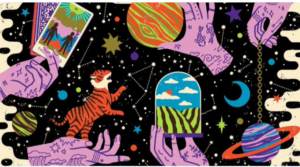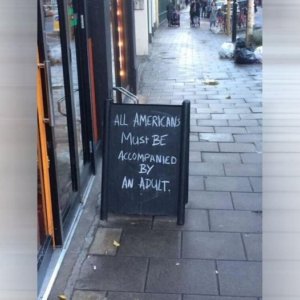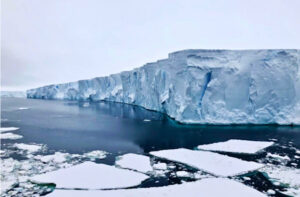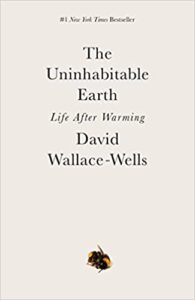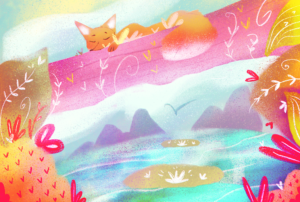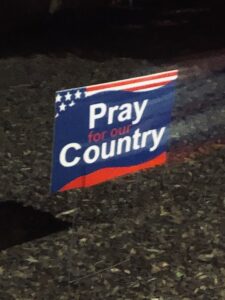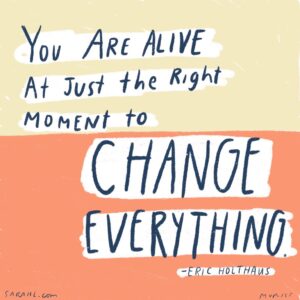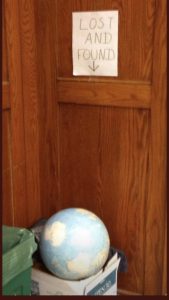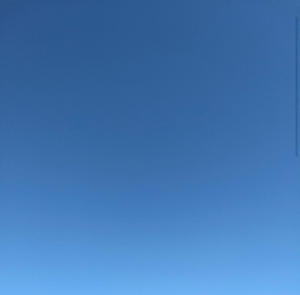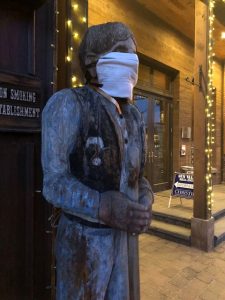Eric Holthaus
Final days. #2022
December 30, 2021‘I regret nothing.’ -Edith Piaf
‘I’ve learned a great deal this year. What kind of year did you have? No matter how many challenges you’ve had, no matter what pain you’ve endured, did you do your very best? Then have no regrets.’ -A. Stoddard
As a collective we should have so many, and we can do so much better. We must. -dayle
Brian McLaren from the Center of Action and Contemplation:
“Something beautiful lies ‘unveiled’ on the other side of complexity and perplexity.”
Gatekeepers have long built razor-wire fences around us with
- beliefs
- rules
- policies
- controversies
- budgets
- programs
- activities
- rituals
- offerings
- inquisitions
Spirituality, though, is available to everyone, like wind, rain, and sun. [Brian McLaren] This is what we harness and share, and protect. “In politics, we’ve been studying war for centuries. We must now study how to crate the conditions for deep and lasting peace. We must now cherish life on earth and engage with it by focusing our best energies on learning to love neighbor, self, earth, and God…Gaia…who is Love.”
LATimes
What LA astronomers and diviners have in store for you in 2022.
-Deborah Netburn, staff writer
‘Spend time dreaming about the world in which you want to live…get specific about what real-life steps you can take to make it a reality. Ask, what does it mean to you to release the Earth, working with others to help the land rest more?’
Full piece [paywall]:
‘These are scary, uncertain times. The pandemic has thrown our lives into chaos once again. Global warming has upended the predictable flow of the seasons. The political climate is divisive and volatile. With all this anxiety swirling around us, is it any wonder that tarot readers, astrologers and other divinatory practitioners say they’ve never been busier? All of us want to know what will happen next.
From the Oracle at Delphi to the Yoruba practitioners of Ifá, there are myriad ways to approach divination and myriad reasons for wanting to see into the future. These tools can be seen as a framework to make sense of the events in our lives. Through this lens, divinatory practices encourage believers to pay attention to the patterns in their lives and the cycles of nature and to move through time with intention.
Los Angeles is among the most spiritually diverse cities in the world; we live alongside thousands of divinatory practitioners from a wide range of traditions — many of whom have devoted their lives to the study of ancient practices that go back thousands of years. As we enter a new calendar year, I asked a handful of them what archetypal energies they expect we’ll encounter over the next 12 months and how we might prepare.’
[Posted on twitter, as seen outside a pub in Europe.]
Eric Holthaus, The Phoenix:
“Any time a climate movie breaks through, it’s worthy of celebration. But this isn’t an ordinary climate movie. #DontLookUp![]() is special.”
is special.”
In the last days of 2021, a year in which Texas froze and the freakin’ ocean caught fire, the number one movie in the world on Netflix is a star-studded climate movie that’s not about climate.
Let me be super clear: Any time climate breaks through, it’s worthy of celebration. But this isn’t an ordinary climate movie. Don’t Look Up is special.
Watching it last night for the first time, I was legitimately blown away by how much I felt like I could relate to the main plot — well-meaning scientists being ignored because their message wasn’t pleasant or profitable. I was scared to watch it because I was worried it would make me feel even more depressed than I already do about being a climate communicator during these decades of climate delay, but it’s just the opposite. This is the climate movie I was waiting for.
“The reason I think Don’t Look Up works so well is because the film’s creators did their homework. There are so many Easter Eggs thrown in throughout that it’s like a love letter to climate activists. There is a massive, waiting audience for authentic climate movies like this that speak to the deep, existential anxiety of being alive at this profoundly terrifying moment in history. We know how to solve the climate emergency — stop burning fossil fuels, build up a circular, caring society, and shift political power so that nothing like it ever happens again — and yet our leaders are staring us straight in the face and saying no.
Director Adam McKay wrote that his own climate anxiety after reading David Wallace-Wells’ The Uninhabitable Earth helped inspire the film, and screenplay co-writer David Sirota wrote that empowering the climate movement was a primary goal of the film.
I reached out to McKay and Sirota, and they both confirmed this hunch I had that the movie wasn’t just a political satire, it was a gift for battle-weary activists after several long, hard years of struggle. “We literally made Don’t Look Up for the climate community,” McKay told me.
When I asked Sirota about the movie’s lack of a preachy, prescriptive call-to-action takeaways at the end, he said that was intentional.
“We want it to be a clarion call for the movement,” Sirota said, “But also respect that the movement should decide its tactics.”
The movie isn’t perfect. There’s too much of a focus on the United States, and there’s a valid criticism that seeking action from corrupt politicians during a time of crisis is counterproductive. We know that climate action at the scale and scope we need will only come from collective movements.
But that’s exactly our job now — tell more climate stories that build on this one.
This isn’t a movie that could exist without the decades of failures that have happened so far. But it’s also a movie that finally FINALLY acknowledges that the lynchpin to taking action on climate isn’t about data or carbon or graphs, it’s about finding our shared humanity.
That part is working:
Authentic climate action is way easier than shooting nukes at a comet — it’s treating each other and the Earth better. It’s listening. It’s building systems of power to replace the systems that have been built to kill us.
It’s up to us, the climate movement, to redirect the energy that Don’t Look Up gives us.”
David Wallace-Wells:
“Globally, 250 million people live within three feet of high tide lines. Ten feet of sea level rise would be a world-bending catastrophe. It’s not only goodbye Miami, but goodbye to virtually every low-lying coastal city in the world.”
“Thwaites Glacier is the size of Florida. It is the cork in the bottle of the entire West Antarctic ice sheet, which contains enough ice to raise sea levels by 10 feet.” The great Jeff Goodell on the scary signs from the “Doomsday” glacier.
Rolling Stone
by Jeff Goodall
https://www.rollingstone.com/politics/politics-features/doomsday-glacier-thwaites-antarctica-climate-crisis-1273841/
New data suggests a massive collapse of the ice shelf in as little as five years. “We are dealing with an event that no human has ever witnessed,” says one scientist. “We have no analog for this”
“Given the ongoing war for American democracy and the deadly toll of the Covid pandemic, the loss of an ice shelf on a far-away continent populated by penguins might not seem to be big news. But in fact, the West Antarctic ice sheet is one of the most important tipping points in the Earth’s climate system. If Thwaites Glacier collapses, it opens the door for the rest of the West Antarctic ice sheet to slide into the sea. Globally, 250 million people live within three feet of high tide lines. Ten feet of sea level rise would be a world-bending catastrophe. It’s not only goodbye Miami, but goodbye to virtually every low-lying coastal city in the world.”
Power in disorder (Joan Didion). Let’s reclaim it now.
Order, disorder, reorder (Father Richard Rohr).
Pandemic life.
Climate Emergency.
Pari Center, Italy.
COVID, CLIMATE & COMPASSION
January 2, 2021We need to focus and fix all three.
From Eric Holthaus:
Original art for The Phoenix is by Laila Arêde.
Our time here on this beautiful planet is so temporary.
If there’s anything that 2020 taught us, it’s that while time is fleeting for everyone,
it’s the way society is structured
that determines how fleeting it is, and for whom. The overlapping tragedies of Covid-19, police brutality, and the climate emergency don’t fall equally on everyone, and
it’s up to us to change that system
to ensure everyone here gets the chance to thrive that they deserve.
That’s the heart of climate justice.
Our window for revolutionary repair of our planet’s atmosphere and biosphere – caused by centuries of excesses brought by capitalism, patriarchy, misogyny, imperialism, and racism – is bound by physics. We can (and should!) argue about the best ways to get to a zero-carbon world as quickly as possible, but we can’t argue with the fact that current global policies will deliver a planet that’s incompatible with a safe future for billions of people who did the least to cause the climate emergency.
This is what we’re fighting for: Indigenous sovereignty, regenerative care of the land, shelter, equity, joy. All the basics that people need to live a good life. A vision for a bread and roses future for everyone.
Getting started with that journey isn’t hard.
The point is only that you show up.
We need everyone to be a part of this transformation in their own way.
At the same time, becoming a Climate Person isn’t easy. But it’s some of the most important work in the history of the world. You don’t get to give up, but you do get to ask for help.
If living your best life includes making the world more life-sustaining for every creature we share this beautiful planet with, the rest of this post will help you get started.
Meteorologist and climate journalist Eric Holthaus describes himself as “a meteorologist who strives to foster understanding of humanity’s connection to the atmosphere.” Here he delivers a monologue on climate change and his mission to remind everyone that we are all in this fight together. Eric wants to change the narrative of climate change from being “one of inevitable disaster to one of possibility.”
Author Allysha Lavino and a thought for 2021:
And what do we want to bring with us?
Courage?
Wisdom?
Tenacity?
This is the year we feather our nests – it’s time to take care of ourSelves, our families, our communities, and our environments.
❀
Climate and Covid and Lies
September 9, 2020“Days like today are when revolutions are born. A better world is possible.”
-Eric Holthaus, author and climate correspondent
[Photo taken in Ketchum, Idaho.]
Iowa, California, Lousiana, Greenland…
August 28, 2020#ClimateEmergency
Hopeful thoughts from a climate correspondent.
“The climate emergency is very bad. Over the past few days, disasters have cascaded around the world. But no matter how dire the pandemic-climate-racial uprising emergency gets, there is never, ever a reason to give up.” -Eric Holthaus
On climate doom
Hi,
Over the past few days, disasters have cascaded around the world. More of California burned in a one-week span than in almost any other full year in recorded history. Hurricanes have battered the Caribbean and the US Gulf Coast. The strongest typhoon in North Korea’s history made landfall. Scientists unveiled doomsday updates from Greenland, Antarctica, and the North Pole.
Watching all this, I felt a familiar sense of despair settle in. When disasters are in the headlines, I often have a counter-intuitive response. My mind automatically races to the countless everyday changes in weather that go largely unnoticed, but in aggregate add up to civilisation-altering, fundamental changes that once manifest, become irreversible.
I find myself noticing the impulse to give in to climate doom.
This thread from my friend and former podcast co-host Jacquelyn Gill explains how this instinct is partly a result of privilege in climate spaces. It’s often easier to imagine the apocalypse than the systemic changes necessary in every aspect of society to steer us away from oblivion.
The climate emergency is very bad. It magnifies inequalities. It’s a manifestation of hundreds of years of injustice and erasure.
But if you find yourself thinking “we’re screwed”, here’s a gentle reminder to ask yourself who “we” is. This has been happening for a long time.
This week’s good news on climate
We need to move past the “we’re screwed” narrative on climate change and ecosystem collapse. Fast. A dead world is not our destiny.
Yes, the odds are against us as long as we stay on our current path. But we can and must radically change that path. We can do this, and we will.
We’ve reached the point in the pandemic-climate-racial uprising emergency that there are multiple versions of reality floating around and it’s very difficult to keep track of reality.
Hope is hard work.
and some people just aren’t willing to do it.
I’ve subscribed to the concept of atmospheric harm reduction. Harm reduction is a strategy that’s used to de-escalate violence and self-harm, and involves things like sanitised needle distribution or legalising and regulating marijuana.
The same applies to the climate emergency. Every tonne of carbon avoided through developing tough new habits, every climate denier voted out of office and replaced with an imperfect-but-better candidate, every difficult conversation that helps you articulate your ardent love for the world and everything that’s worth saving – all of those help make the world a measurably better place.
There are days when it will feel like you can’t go on, that all your work is pointless. But in those days remember that a better world is always possible. We can take breaks. We can endure setbacks. But we can never, ever give up. You were born just in time to transform the world.
https://thecorrespondent.com/652/on-climate-doom/86316088628-71047c4c
Bluer skies.
April 10, 2020‘I love this — taken by Brooke Williams at Dartmouth’ -Terry Tempest Williams
Remember: You are alive, and a better world is possible.
by Eric Holthaus/The Correspondent
‘Warm weather is back, and at least here in Minnesota, we are remembering we are still alive.
Last weekend, my preschoolers and I couldn’t help but spend all day enjoying the weather. Although the morning was still chilly, with frost on the newly green grass, the temperature quickly warmed up to more than 20C (68F) in the afternoon, the best days of spring here so far.
The whole time we were outside, I was keenly aware of the profound luxury that fresh air and freedom in nature are these days, but the thing that struck me most was the sky.
Looking straight up, the sky here was a remarkable shade of dark blue, almost Pantone ultraviolet.
In my best meteorological opinion, this breathtaking colour was due to a combination of a high pressure system overhead on a sunny spring day mixed with the effects of this pandemic: fewer clouds due to a 90% reduction of airplanes in the sky and a sharp drop in air pollution from the shuttering of factories and freeways. As I researched a little further, my suspicion was confirmed: bluer skies aren’t just happening here in Minnesota, they’re happening all around the world.
Airplane contrails create temporary high-level cirrus clouds, which on balance sharply warm the planet by allowing sunlight through to the Earth’s surface, but blocking heat from escaping back out into space. It’s a much greater warming effect than the greenhouse gases airplanes emit from burning jet fuel. And right now, these clouds are almost entirely absent.
But probably the biggest factor is the sharp drop-off in air pollution, which creates a palpably thick omnipresent haze in almost every major city worldwide. Air pollution is one of the leading causes of death in nearly every country, and in low-income countries, it’s the world’s leading killer. These blue skies are literally life-saving.
Still, we shouldn’t be cheering this pandemic, even if it’s giving us cleaner skies. Wishing for one form of death to save us from another form of death is a false choice, and we don’t have to make it. Instead, we should take this moment to remember that our lives are a gift, and that a better world is possible.’
Ketchum, Idaho – April 9th, 2020
